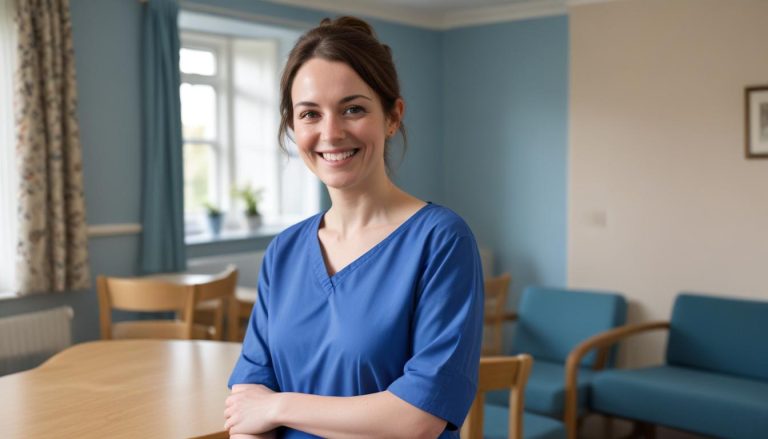
PIES is one of the most widely used frameworks in Health and Social Care across the United Kingdom. It helps professionals and students understand the four main areas that make up human development and well-being: Physical, Intellectual, Emotional and Social. Each area is equally important for a person’s growth, fulfilment and independence, no matter the age or circumstance. Care providers often use the PIES model when assessing needs, planning support, or reviewing progress.
PIES encourages a balanced view of people as complex individuals whose strengths and difficulties can span more than one aspect of their lives.
Physical Development in PIES
Physical development looks at how the body grows, changes, and maintains itself. From birth through old age, people’s bodies go through natural stages and may face challenges both minor and major. Physical health covers a broad range of functions, such as mobility, strength, appearance, senses, and general fitness.
Supporting physical needs involves more than just medical care. Nutrition, exercise, hygiene, rest and access to medical support are all important factors. For health and social care workers, noticing changes in a person’s ability to walk, feed themselves or carry out daily tasks is just as relevant as understanding an illness or injury they may have.
Some factors that can affect someone’s physical development include:
- Genetics
- Diet and hydration
- Physical activity
- Access to healthcare services
- Living conditions
Regular assessment and support can help people recover from illness, adapt to changes, or manage chronic conditions. Even minor improvements in comfort or mobility can make daily life much easier.
Physical development is linked to the other parts of PIES too. For example, people who cannot move easily may start to feel isolated, which can affect their mood and relationships.
Intellectual Development in PIES
Intellectual development involves the mind and thinking processes. This includes learning new things, memory, problem-solving skills, decision making, and the ability to apply knowledge to different situations. Intellectual development starts in early childhood, as children explore the world and develop language, understanding, and reasoning.
In adults, intellectual abilities can change because of life experiences, education, or illness. People facing dementia, brain injury or mental health concerns may need support to maintain or improve their cognitive skills.
Carers and professionals support intellectual needs in several ways:
- Providing structured activities that challenge the brain
- Encouraging independence in problem-solving
- Offering opportunities for continued learning
- Supporting access to information and technology
- Using activities suited to a person’s abilities and interests
A person’s intellectual development is not only shaped by formal education. The ability to solve everyday problems, express ideas, or manage personal finances helps people lead independent lives. Intellectual growth often leads to better self-confidence and opens up new opportunities for both work and social interaction.
Supporting a sense of achievement is a key part of care, so recognising every gain, no matter how small, can raise morale and help people feel valued.
Emotional Development in PIES
Emotional development looks at how people understand and manage their feelings. This covers a wide range of areas, including self-esteem, how people cope with stress, resilience, trust, and sense of security.
Life events such as bereavement, trauma, or big changes can affect someone’s emotional well-being. Support workers notice feelings such as sadness, happiness, anxiety, and anger—these do not just affect mental health but often influence physical and social well-being too.
Emotional support involves:
- Listening without judgement
- Encouraging conversation about feelings
- Creating a safe, trusting environment
- Recognising signs of emotional or psychological distress
- Supporting people in managing anger, grief or anxiety
Everyone experiences emotions differently, and this is influenced by age, personality, culture and experience. One person may recover from setbacks quickly, while another may need more time or support to process feelings.
Maintaining emotional well-being helps people form and keep relationships, handle life’s challenges, and enjoy a sense of purpose. Emotional growth often leads to greater independence and resilience.
Social Development in PIES
Social development describes how people build relationships and interact with others. It is shaped by family, friendships, education, culture and work. From birth, people learn to communicate, play, cooperate, and handle social rules. Social needs shift throughout life, from childhood friendships, teenage relationships, adult partnerships, to social groups in older age.
Social isolation or a lack of opportunities can have a negative effect on mental health and self-esteem. Available friendships and support networks give people a sense of identity and belonging. This remains true for people facing illness, disability, or advanced age.
Ways to support social development include:
- Encouraging involvement in community activities
- Assisting with transport to clubs or appointments
- Helping maintain contact with family and friends
- Supporting communication, for example, using sign language or technology
- Promoting group activities suited to individual interests
People who feel socially included often report better health and well-being. Social development relies on effective communication skills and mutual respect. For some, this means learning to make new friends or rebuild trust after a loss or negative experience.
The Importance of Addressing Each Area Equally
Using the PIES framework helps care professionals build a full picture of a person’s strengths and needs. Focusing on one area without considering the others rarely produces good results. There are strong links between all four. Poor health can reduce a person’s confidence, leading them to withdraw from social life. Low self-esteem may affect their willingness to learn new skills. Lack of intellectual stimulation can lead to boredom and depression. Social withdrawal can make emotional problems worse.
By keeping the whole person in mind—body, mind, emotions, and relationships—care workers offer support that helps people live as independently and happily as possible.
Some practical approaches include:
- Holistic assessments that cover all areas
- Creating care plans that set clear, realistic goals
- Regularly reviewing progress in each area
- Involving people in decisions about their own care
Both families and care professionals should work together to support development in each aspect of PIES. Small, regular steps can make a bigger difference than a single large intervention.
Examples of PIES in Practice
Case studies show how PIES works day-to-day. For example, a teenager with learning difficulties might receive support that covers:
- Physical: Help with physiotherapy, encouragement to join a sports club
- Intellectual: Learning life skills and practising memory games
- Emotional: Building confidence through praise and setting small targets
- Social: Attending youth groups and making friends
Similarly, an older person recovering from a stroke may need:
- Physical: Rehabilitation exercises, support with mobility aids
- Intellectual: Activities to improve memory, puzzles, and games
- Emotional: Support to work through grief or frustration from changes in ability
- Social: Help to reconnect with friends or take part in social groups
By applying the framework flexibly, support staff can adjust the care they give as people’s needs or wishes change.
PIES and Lifespan Development
PIES is relevant from birth to old age. Each life stage brings different needs and challenges for physical, intellectual, emotional and social development.
In childhood, focus often sits on growth, learning through play, forming first friendships, and dealing with basic emotions. In adolescence, attention may shift towards independence, identity, and peer relationships.
For adults, intellectual development might focus on training and career progress, while emotional needs can centre on coping with pressure, building partnerships, and raising children.
Older adults may prioritise staying physically active to protect health, staying socially involved to avoid isolation, and managing the impact of loss or dementia.
Understanding PIES at every age helps care staff support people to achieve their own goals and feel valued.
Stereotypes and Barriers Within PIES
Everyone’s needs are individual, yet people can be held back by stereotypes or lack of resources in each PIES area.
For example:
- Physical: Assuming older adults cannot be active or young people are always healthy
- Intellectual: Overlooking someone’s ability to learn because of disability
- Emotional: Failing to notice silent distress because there are no visible signs
- Social: Thinking loneliness only affects the elderly
Common barriers might be:
- Lack of accessible transport or facilities
- Not enough staff to offer one-to-one support
- Stigma attached to mental health problems
- Language or cultural differences
Staff who stay open-minded, observant and flexible can help break down these barriers.
Supporting Development in All Areas
Good care practice should always focus on active support within all areas of PIES. This might mean working in a team, using creative activities, involving families, or working with other professionals.
Practical ways to support people include:
- Helping people set their own goals
- Using inclusive language that builds trust and understanding
- Training staff to spot physical, intellectual, emotional or social changes
- Encouraging people to make choices
- Creating safe, stimulating environments
Promoting confidence and understanding across all aspects of PIES gives people a stronger sense of self and opens up new opportunities.
The Role of PIES in Health and Social Care Education
Students and staff in Health and Social Care use PIES to understand how people’s bodies, minds, feelings and connections shape daily life. Training focuses on noticing small changes, working in partnership with service users, and using evidence from different sources.
Assignments, care plans and workplace reviews will often refer back to the PIES framework. By applying these principles, students prepare for real-life situations, making their work more person-centred and far-reaching.
Key learning points include:
- Every person’s development is unique
- Needs can change over time
- Support should respect all aspects of development
Final Thoughts
PIES is a practical tool for understanding people’s complete range of needs and supporting care in a truly person-focused way. It acts as a constant reminder that good health and happiness depend on more than just treating an illness or providing a service.
Balanced support across physical, intellectual, emotional, and social areas has lasting benefits for self-worth, independence and happiness. By applying PIES thoughtfully, staff offer a better quality of care—and help people of all ages lead richer, more satisfying lives.
Subscribe to Newsletter
Get the latest news and updates from Care Learning and be first to know about our free courses when they launch.






